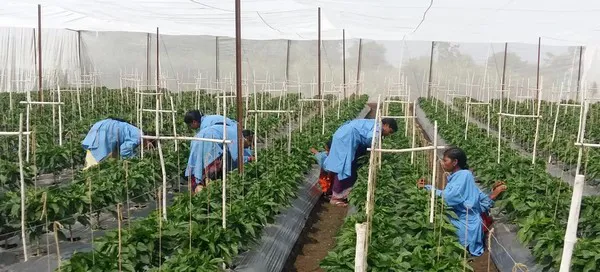BASF, Syngenta, and Arisa joined hands in a multistakeholder collaboration called Wage Improvements in Seed Hybrids (WISH). WISH will address child labor issues and strive for minimum wage compliance in the vegetable seed sector in India.
The four-year project, cofounded with a grant from the Dutch Enterprise Agency (RVO), consists of two phases: In the first phase, WISH will research whether and where payments are still below minimum wages and/or child labor and the violation of other labor rights occur. This data will be independently collected by two India-based organizations, Glocal Research and MV Foundation, and used by them to suggest modes of action to address these challenges. In the second phase, WISH will implement strategies that address the root causes of gaps in the minimum wages and child labor regulations in the vegetable seeds sector.

Labor risks
Various industry reports from Fair Labor Association (FLA) and Arisa indicate that the agriculture sector in India faces several critical and systemic issues related to human and labor rights. Current wages in the sector are often lower than the region’s statutory minimum wage, and although child labor has been greatly reduced in the past few years, it remains an ongoing challenge within the agricultural sector.
“In this project, Arisa will use its expertise, knowledge, and network to address labor rights violations in the vegetable seed sector. Due to COVID-19, the issues motivating this project have become even more urgent: the number of children working has increased in the last two years, as schools were closed and families lost income,” says Sandra Claassen, the Director of Arisa.
BASF’s vegetable seeds business started in 2009 an initiative towards a sustainable seed supply in India, which is a successful effort to eliminate child labor. "We achieved this by raising awareness among our seed suppliers to adopt best practices for adhering to a zero-tolerance towards child labor, evaluating and monitoring our suppliers as well as promoting school attendance to prevent child labor", says Rob Huijten, Country Head Netherlands, and board member of BASF’s vegetable seed business. In this next step, BASF will -together with its partners- actively accompany and support this transformation of the entire Indian vegetable seed sector. “We are proud to work together with Syngenta and Arisa to address this complex situation that still affects thousands of families in India,” says Rob Huijten.
“We understand that meaningful outcomes can best be achieved through collective action from various stakeholders. Through this collaboration, we aim to bring partners together to build a roadmap for wage progression across the vegetable seeds sector,” says Jason Allerding, Head of Health, Safety & Environment, Sustainability and Risk Management, Syngenta Seeds.

 BASF Vegetable Seeds
BASF Vegetable Seeds
